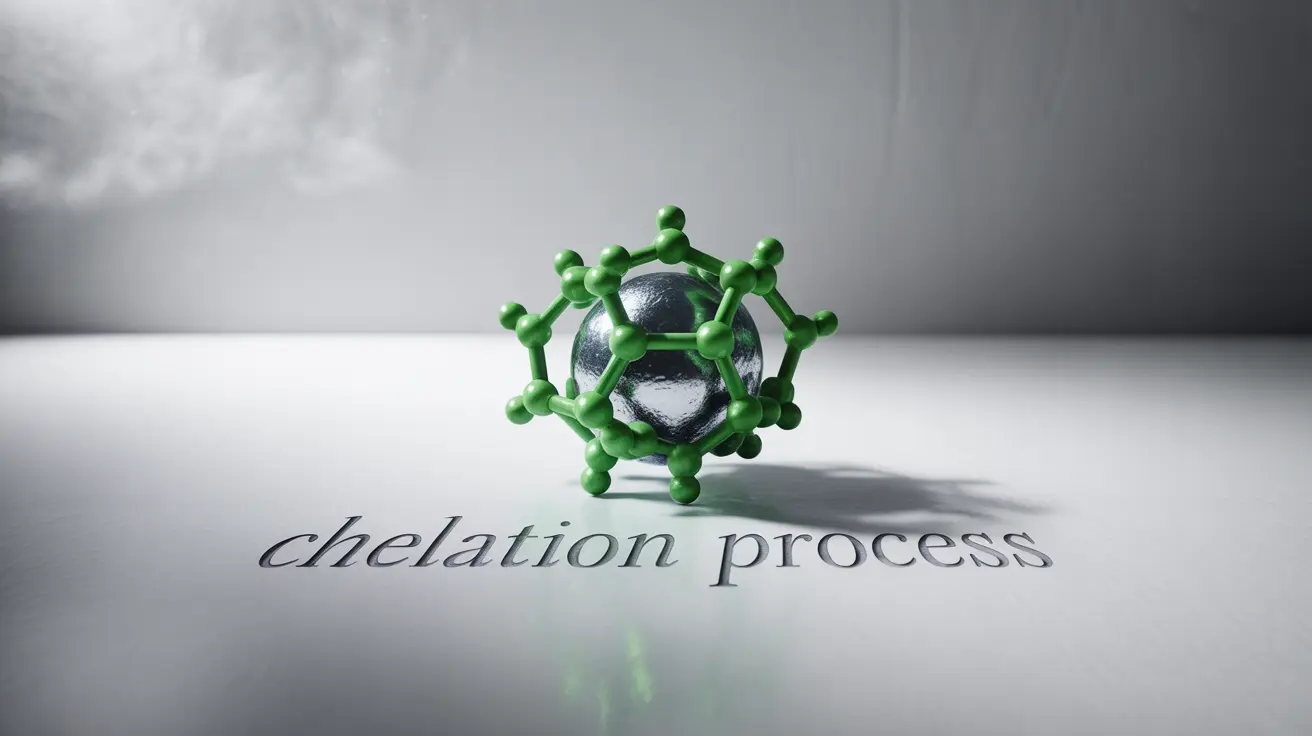Chelated zinc has gained significant attention in the supplement world for its enhanced absorption and potential health benefits. This specialized form of zinc supplementation combines zinc with organic compounds called chelators, making it potentially more effective than traditional zinc supplements. Understanding what makes chelated zinc unique and how it can benefit your health is crucial for making informed supplement choices.
In this comprehensive guide, we'll explore the science behind chelated zinc, its numerous health applications, proper dosage guidelines, and important safety considerations to help you determine if this supplement might be right for you.
What Makes Chelated Zinc Different?
Chelated zinc is created through a process called chelation, where zinc molecules are bound to amino acids or other organic compounds. This binding process creates a more stable and potentially more bioavailable form of zinc that your body can better utilize. The chelation process helps protect the zinc from binding with other substances that might inhibit its absorption, such as phytates found in many plant-based foods.
The most common forms of chelated zinc include:
- Zinc bisglycinate
- Zinc picolinate
- Zinc citrate
- Zinc gluconate
Health Benefits and Applications
Chelated zinc offers numerous health benefits that make it a valuable supplement for many individuals. Some of the key advantages include:
Immune System Support
Zinc plays a crucial role in maintaining immune system function by supporting the development and activity of immune cells. Chelated zinc's enhanced absorption may make it particularly effective for immune support.
Skin Health
The mineral is essential for maintaining healthy skin and supporting wound healing. Its role in protein synthesis and cell repair makes it valuable for skin health maintenance.
Reproductive Health
Zinc is vital for reproductive health in both men and women, supporting hormone production and maintaining reproductive organ health.
Digestive Health
The mineral helps maintain the integrity of intestinal tight junctions and supports proper nutrient absorption throughout the digestive system.
Proper Dosage and Safety Guidelines
The recommended daily allowance (RDA) for zinc varies by age and gender:
- Adult men: 11 mg per day
- Adult women: 8 mg per day
- Pregnant women: 11 mg per day
- Breastfeeding women: 12 mg per day
When taking chelated zinc supplements, it's important not to exceed the upper limit of 40 mg per day from all sources, as excessive zinc intake can lead to adverse effects.
Risk Factors for Zinc Deficiency
Certain populations may be more likely to benefit from chelated zinc supplementation, including:
- Vegetarians and vegans
- Older adults
- People with digestive disorders
- Pregnant women
- Athletes with high mineral losses through sweat
- People with certain chronic conditions
Optimizing Absorption and Avoiding Interactions
To maximize the benefits of chelated zinc supplementation:
- Take zinc supplements on an empty stomach or between meals
- Avoid taking zinc with iron supplements
- Space zinc intake apart from calcium-rich foods
- Consider taking zinc with vitamin C for enhanced absorption
Frequently Asked Questions
What is chelated zinc and how does it differ from other zinc supplements? Chelated zinc is zinc that has been bound to organic compounds called chelators, which can improve its absorption and stability in the body. This form differs from standard zinc supplements because the chelation process may help prevent the zinc from binding with substances that could inhibit its absorption.
What are the health benefits of taking chelated zinc? Chelated zinc supports immune function, skin health, wound healing, reproductive health, and proper enzyme function. Its enhanced absorption may make these benefits more pronounced compared to non-chelated forms.
How much chelated zinc should I take, and are there risks of taking too much? Adults should generally not exceed 40 mg of zinc daily from all sources. Most people need between 8-11 mg daily, with slightly higher needs during pregnancy and breastfeeding. Excessive intake can lead to copper deficiency and other adverse effects.
Who is most at risk for zinc deficiency and might benefit from chelated zinc supplements? Vegetarians, vegans, older adults, pregnant women, people with digestive disorders, and those with certain chronic conditions are at higher risk for zinc deficiency and may benefit from supplementation.
Can chelated zinc interact with medications or foods, and how can I maximize its absorption? Chelated zinc can interact with certain antibiotics, diuretics, and other medications. To maximize absorption, take it on an empty stomach, avoid taking it with iron supplements or calcium-rich foods, and consider combining it with vitamin C.




